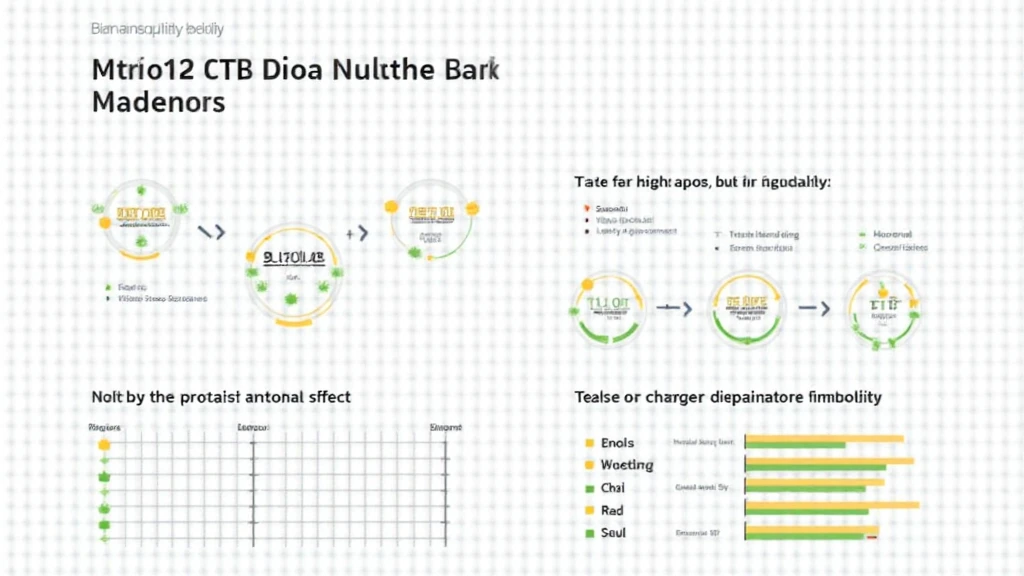
Introduction
The emergence of Bitcoin exchange-traded funds (ETFs) has created substantial interest among investors globally, including in Vietnam. According to a recent report, the number of cryptocurrency users in Vietnam has reached 5.9 million, showcasing an impressive growth trajectory and increasing market potential. However, with the rapid evolution of digital assets, navigating the regulatory environment is paramount. So, what does the Bitcoin ETF regulatory landscape look like in Vietnam?
Understanding Bitcoin ETFs
What is a Bitcoin ETF? Essentially, a Bitcoin ETF allows investors to gain exposure to Bitcoin without having to directly purchase the cryptocurrency. This investment vehicle consolidates Bitcoin’s value and trades like a stock. It serves as a bridge for institutional and retail investors looking to engage with the cryptocurrency space without dealing with the complexities of wallets and exchanges. Here’s the catch: while it’s designed to simplify the investment process, investors must still consider regulatory factors that could affect their holdings.
Global Perspectives on Bitcoin ETFs
Before diving into Vietnam’s regulatory environment, it’s crucial to look at how different countries have approached Bitcoin ETFs:

- United States: As of 2023, several Bitcoin ETFs have been approved, as the Securities and Exchange Commission (SEC) re-evaluated its stance on cryptocurrency.
- Canada: Canada was among the first countries to approve Bitcoin ETFs, providing a clear regulatory framework that boosts investor confidence.
- European Union: The introduction of Markets in Crypto-Assets (MiCA) regulation aims to standardize crypto regulations across member states.
These examples highlight the importance of a supportive regulatory framework in fostering a healthy investment environment for Bitcoin ETFs.
Current Regulatory Landscape in Vietnam
Vietnam’s approach to cryptocurrencies has been cautious yet evolving. The State Bank of Vietnam has reiterated its stance against the use of cryptocurrencies as a means of payment, but has shown openness towards blockchain technology and its applications. The goal is to create a safe environment for investors while enhancing the fintech landscape in Vietnam. So, how do Bitcoin ETFs fit into this picture?
Regulatory Developments Relevant to Bitcoin ETFs
As of 2023, the regulatory framework for Bitcoin ETFs in Vietnam is still under development. Some key points to consider include:
- Legal Status: Cryptocurrencies are not yet recognized as legal tender, which poses a challenge for the approval of Bitcoin ETFs.
- Future Regulations: The Vietnamese government is working on a comprehensive regulatory framework that could potentially include guidelines for Bitcoin ETFs.
- Public Interest: An increasing number of Vietnamese investors are seeking exposure to Bitcoin, pressuring regulators to provide clearer guidelines.
This evolving landscape indicates that while challenges exist, there may be opportunities ahead for Bitcoin ETFs in Vietnam as regulatory discussions progress.
Challenges Facing Bitcoin ETF Approval in Vietnam
To truly understand the potential for Bitcoin ETFs in Vietnam, it’s essential to assess the challenges that may impede their approval:
- Regulatory Uncertainty: Lack of clarity can deter institutional investors from engaging with Bitcoin.
- Market Volatility: Bitcoin’s price fluctuations can raise concerns among regulators regarding investor protection.
- Investment Knowledge Gap: Many potential investors may lack the understanding necessary to navigate Bitcoin investments.
Addressing these challenges will be crucial for fostering a conducive environment for Bitcoin ETFs.
Potential Impact on Vietnamese Investors
If Bitcoin ETFs become a reality in Vietnam, their impact on investors could be profound. With a potential market growth underpinned by an increasing number of crypto users, the introduction of ETFs could lead to:
- Increased Access: More individuals could gain entry into crypto investing without requiring extensive technical knowledge.
- Enhanced Security: Regulated Bitcoin ETFs would likely offer higher security levels than direct cryptocurrency ownership.
- Market Maturity: The presence of ETFs could contribute to overall market stability and legitimacy.
These factors underscore the potential for Bitcoin ETFs to revolutionize access to cryptocurrency investments in Vietnam.
Preparing for the Future of Bitcoin ETFs in Vietnam
While the regulatory framework for Bitcoin ETFs in Vietnam is still being shaped, investors can take proactive steps to prepare for this emerging market:
- Stay Informed: Keeping up with regulatory developments will be crucial to making informed investment decisions.
- Engage with Financial Advisors: Consulting with financial professionals can help demystify the complexities of cryptocurrency investments.
- Assess Risk Tolerance: Understanding one’s own investment risks can lead to more strategic decisions in a volatile market.
With careful preparation, Vietnamese investors can position themselves to take advantage of future Bitcoin ETFs as regulations evolve.
Conclusion
As Vietnam continues to explore the intersection of cryptocurrency and regulation, the potential approval of Bitcoin ETFs holds profound implications for local investors. While challenges exist, the growing interest in cryptocurrencies, coupled with technological advancements, indicates that a structured regulatory environment may soon offer new opportunities. For those looking to navigate this space, the current landscape presents both risks and rewards, and staying informed is vital. As more regulations roll out, Bitcoin ETFs could become an accessible gateway to digital assets in Vietnam, presenting a compelling case for future participation in the ecosystem. To keep track of ongoing developments and capitalize on upcoming opportunities, consider monitoring platforms like hibt.com for insights.







